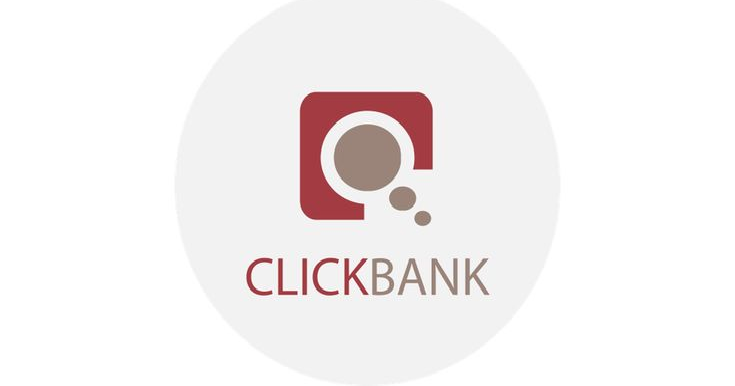Importance of HTTPS for User Trust

Understanding the Importance of HTTPS for User Trust
With the increase with the increase in distrust and scams on line nowadays, secure communications on the web is.
HTTPS (Hypertext Transfer Protocol Secure), or Hypertext Transfer Protocol Secure, is an essential component when it comes to safeguarding online interactions and also transactions.
What the HTTPS does and helps with is exchanging data between users and websites whilst being encrypted, which reduces the likelyhood of potential threats.
This is great for both business and customer, but as it can be easily seen by a new website user it also enhances trust as soon as a new customer neters
your domain, literally 🙂
From a commercial perspective this is beneficial for a business as the more confidence you can give a customer and entering your “online shop” the more likely they are to engage and use our buy your services and products.
Understanding HTTPS
Unlike HTTP, which transmits data in plain text, HTTPS encrypts the data exchanged between the user’s browser and the website server.
This encryption is achieved using SSL (Secure Sockets Layer) or TLS (Transport Layer Security) certificates.
These certificates authenticate the website’s identity and establish a secure connection, ensuring that sensitive information, like passwords and credit card numbers, is protected from unauthorized access.
In essence, HTTPS is vital for both the privacy and security of users, making it a foundational element of modern web practices.
WHat are the costs of setting up and maintaining HTTPS
Average costs associated with implementing HTTPS, including various SSL/TLS certificate options and potential additional expenses:
| Item | Cost Range | Description |
|---|---|---|
| SSL/TLS Certificate | $0 – $1,500 per year | Cost varies depending on the type of certificate (Free, DV, OV, EV). Free certificates available from providers like Let’s Encrypt; higher costs for Extended Validation (EV) certificates. |
| Installation Fee | $0 – $100 one-time fee | Some hosting providers may charge a fee for installing the certificate, though many offer free installation. |
| Dedicated IP Address | $0 – $60 per year | Some SSL certificates require a dedicated IP address, though many providers now support SNI (Server Name Indication), which negates this need. |
| Renewal Fees | Same as initial cost | SSL/TLS certificates typically need to be renewed annually; renewal costs are similar to the initial purchase price. |
| Maintenance and Monitoring | $0 – $200 per year | Costs associated with maintaining HTTPS, such as regular certificate renewals, monitoring for security vulnerabilities, and updates. |
| Web Hosting | $0 – $50 per month | While not specific to HTTPS, reliable hosting may be necessary for security; some providers bundle SSL certificates with hosting packages. |
| Website Migration | $0 – $300 one-time fee | Potential costs for migrating a website from HTTP to HTTPS, including updating links and SEO adjustments. |
Building User Trust with HTTPS
HTTPS Is now the technical standard for all websites, many customers, even non-technical minded customers, will often look out for the security lock on a domain name. Visual indicators, such as the padlock icon in the browser address bar and the presence of “https” in the URL, ultimately this certificate signifies trust.
when setting up a brand new website this is one of the first things that all webmasters should consider one of their first acts when setting up a new business.
Unfortunately we now live in a time where data breaches and privacy concerns are all too common, users have come to expect a certain level of security and privacy online, the |HTTPS is the absolute basic level of security what is one of the most essential.
SEO Benefits of Using HTTPS
As you would expect, HTTPS also plays a crucial role in search engine optimization (SEO). Google, for example, has been using HTTPS as a ranking signal since 2014.
Needless to say, websites with HTTPS are more likely to rank higher in search engine results, as search engines prioritize secure sites to provide a safer browsing experience for users.
It’s obviously not the only and main ranking factor, but its certainly a box that needs to be ticked when building your website, mainly because its an easy win:).
The Risks of Not Using HTTPS
So what happens if you don’t put your HTTP, Security lock in place for all to see??
For starters your rankings could be effected, for the web savvy, they will avoid you like the plaque and go elsewhere to order stuff.
Also, by not having this in place data is vulnerable to interception, and worst case scenario can lead to data breaches!
risks associated with not having HTTPS in place:
| Risk Category | Description |
|---|---|
| Data Theft | Sensitive information like passwords and credit card numbers can be intercepted and stolen. |
| Data Manipulation | Personal details and other data can be altered during transmission by malicious actors. |
| User Trust | Lack of HTTPS leads to decreased user confidence and trust in the website. |
| Reputation Damage | Users perceive non-HTTPS sites as insecure, which can damage a website’s reputation and brand. |
| Loss of Traffic | Browsers may warn users that a site is “Not Secure,” leading to a drop in traffic and engagement. |
| Financial Loss | Potential revenue loss due to decreased user engagement and conversion rates. |
| Increased Cyber-Attacks | Websites without HTTPS are more vulnerable to cyber-attacks, including man-in-the-middle attacks. |
| SEO Penalties | Search engines may rank non-HTTPS sites lower, reducing visibility and search engine traffic. |
Also, keep in mind the absence of HTTPS also poses a risk to a website’s reputation. You’ll be surprised how many people look out for the padlock icon.
Remember:
This lack of trust can lead to a loss of visitors, reduced engagement, and ultimately, a decline in business.
Moreover, browsers now often mark non-HTTPS sites as “Not Secure,” so another big reason to include this in your website set up!
When it comes to the cost of adding HTTPS, especially for businesses, the cost of NOT using HTTPS can far outweigh the relatively low investment needed to secure their website. so in short an absolute must!
Other useful information for Implementing HTTPS
1. Types of SSL/TLS Certificates
| Certificate Type | Description | Use Case | Cost Range |
|---|---|---|---|
| Domain Validation (DV) | Basic level of validation; verifies domain ownership. | Small websites, blogs, or informational sites. | Free – $100 per year |
| Organization Validation (OV) | Intermediate level of validation; verifies domain ownership and organization identity. | Business websites, e-commerce sites. | $50 – $200 per year |
| Extended Validation (EV) | Highest level of validation; includes rigorous checks of organization and legal existence. | High-value transactions, banks, e-commerce sites. | $100 – $1,500 per year |
| Wildcard Certificate | Covers a domain and all its subdomains. | Websites with multiple subdomains. | $100 – $500 per year |
| Multi-Domain (SAN) Certificate | Covers multiple domain names under one certificate. | Companies with several related websites. | $150 – $1,000 per year |
2. Common HTTPS Errors and Solutions
| Error | Description | Solution |
|---|---|---|
| Mixed Content | Secure page loading insecure resources (HTTP). | Ensure all resources (images, scripts, stylesheets) use HTTPS. |
| Certificate Expired | SSL/TLS certificate has expired. | Renew the certificate with the certificate authority. |
| Certificate Name Mismatch | The domain does not match the certificate’s domain name. | Obtain a new certificate for the correct domain name. |
| Untrusted Certificate Authority | The certificate was issued by an untrusted CA. | Use a certificate from a trusted CA. |
| Self-Signed Certificate | The certificate is not signed by a recognized CA. | Replace with a certificate issued by a trusted CA. |
| Incorrect Certificate Chain | Incomplete or incorrect certificate chain presented by the server. | Ensure the server sends the full certificate chain. |
3. Impact of HTTPS on Website Performance
| Aspect | Impact | Description | Mitigation Strategies |
|---|---|---|---|
| Page Load Time | Potential increase | HTTPS requires extra time for handshake and encryption. | Use HTTP/2, which is optimized for HTTPS; implement caching. |
| Server Load | Slight increase | Encryption and decryption require additional server resources. | Use efficient server software and hardware; enable session reuse. |
| Browser Compatibility | Positive | All modern browsers support HTTPS; older browsers may not support certain encryption protocols. | Ensure compatibility with TLS 1.2 and higher. |
| SEO Performance | Positive | HTTPS is a ranking factor in search engines, improving visibility and SEO performance. | Implement HTTPS correctly to maximize SEO benefits. |
4. Benefits of HTTPS for Different Stakeholders
| Stakeholder | Benefit | Description |
|---|---|---|
| Users | Enhanced Security | Protects user data from interception and tampering. |
| Increased Trust | Users are more likely to trust and engage with secure sites. | |
| Website Owners | Improved SEO | Search engines favor HTTPS sites, potentially leading to better rankings and increased traffic. |
| Better Conversion Rates | Secure sites may see higher engagement and conversion rates. | |
| Developers | Easier Modern Development Practices | HTTPS is required for many modern web APIs, allowing for better functionality and security. |
| Businesses | Compliance and Brand Protection | Many regulations require HTTPS for data protection; secure sites protect brand reputation. |







